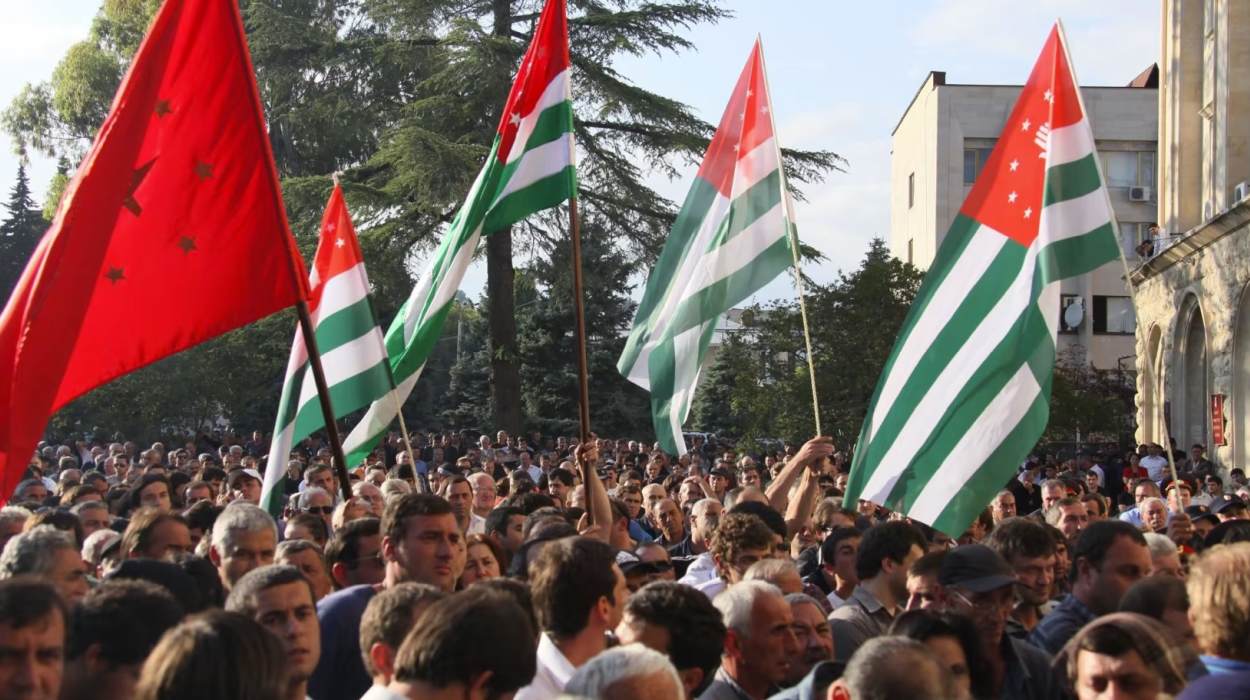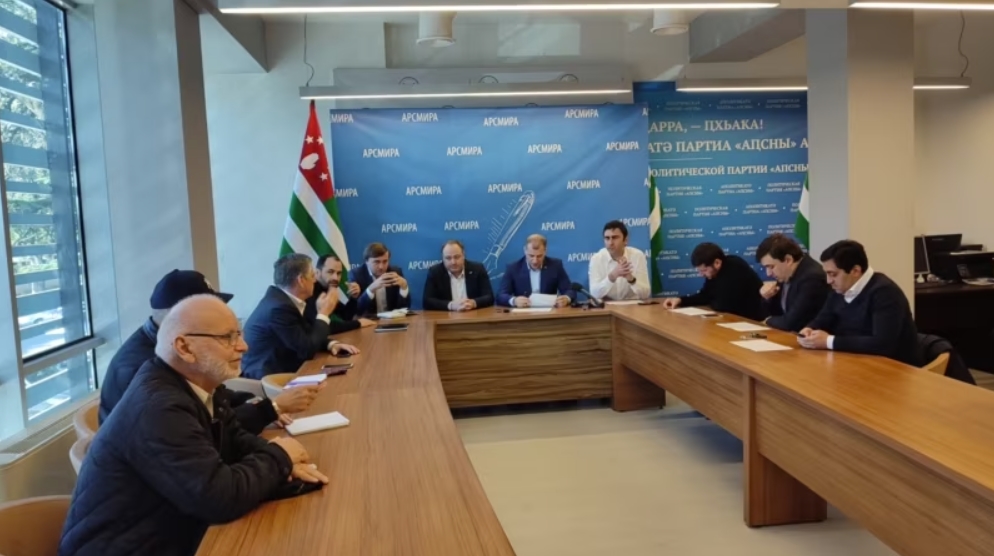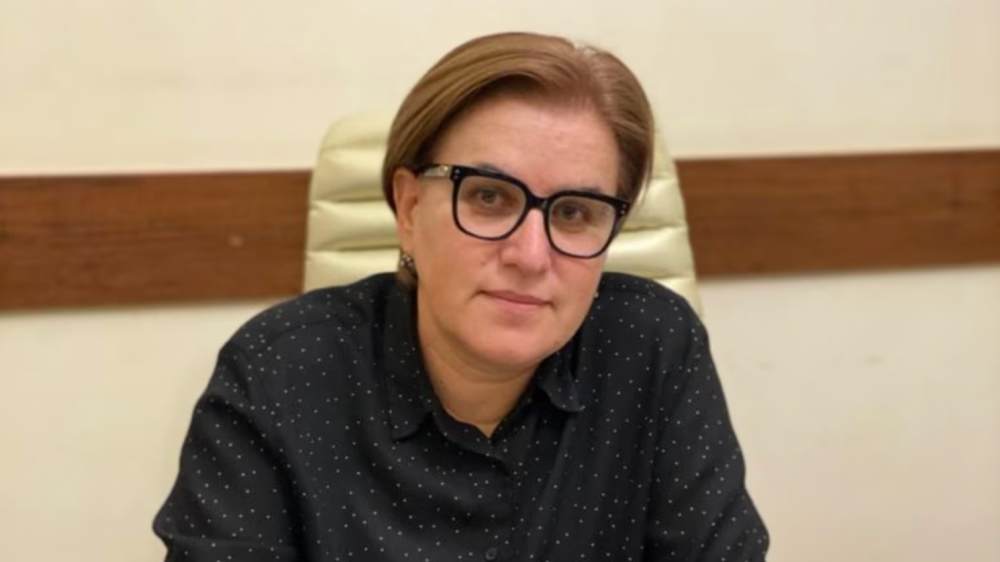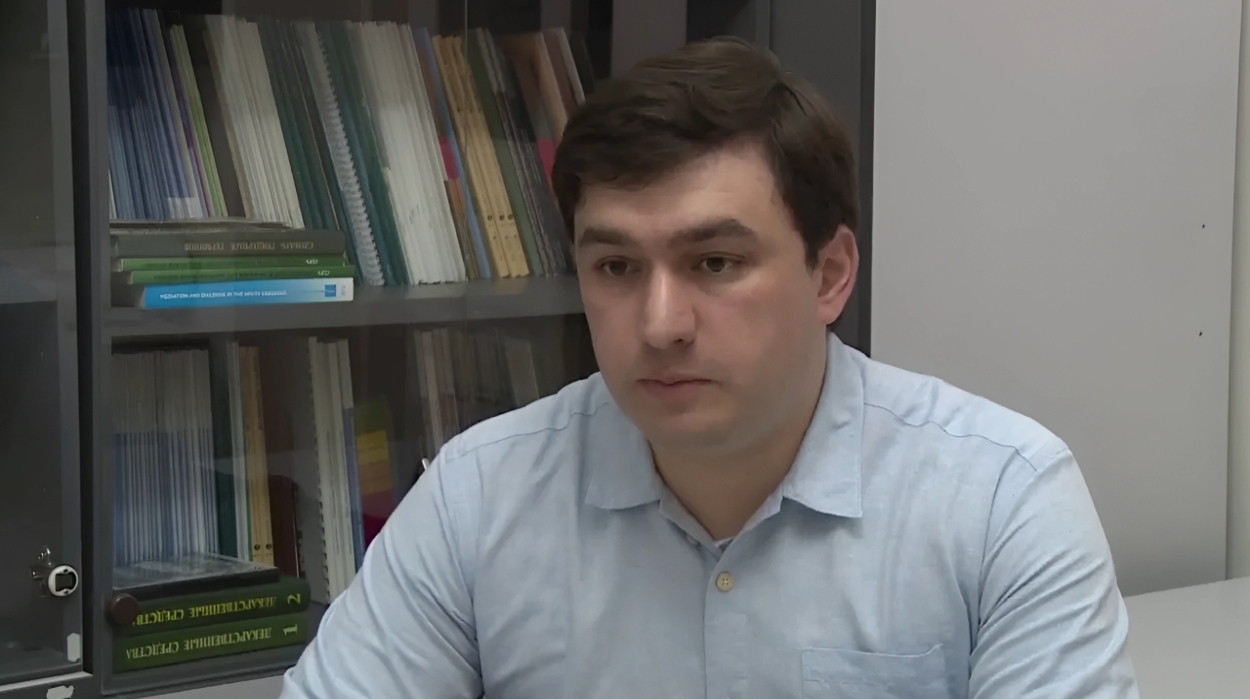The Abkhaz opposition will go to the people

SUKHUM / AQW'A -- Various political parties and movements have joined forces in Abkhazia to establish a new discussion platform open to all who wish to participate. In Sukhum, they addressed the issue of communication between the authorities and society and discussed the need for reform within the state system.
An open gathering of various socio-political organizations was held in Sukhum and was attended by representatives from the Abkhaz People's Movement, the political party "Ainar", the public organizations "Unity" and the "Union of Youth and Veterans of the Patriotic War of the Peoples of Abkhazia", the expert fund "Aamta", parliamentary deputies, and public figures.

The meeting was opened by Adgur Ardzinba, the leader of the Abkhaz People's Movement. He expressed concern that an oligarchy was being established in Abkhazia, which had exclusive access to resources and favoured foreign investors. He claimed that power was being kept away from the people and that there was no competition in the selection of personnel or distribution of resources. Additionally, he mentioned that the government had introduced a 10 billion rubles ($142M) lending program and had compiled lists of large loan applicants, which were sent to Moscow, but everything was being carried out covertly and the names of those on the list were not known to the people of Abkhazia.
A loan of 1.5 billion rubles ($21M), which the authorities plan to secure from Russia, is causing him distrust, as the two billion rubles ($28M) railway loan received from Russia over ten years ago did not bring about any positive results, only increasing the debt.
The chairman of the Aamta expert fund, Natalie Smyr, supported the loan topic and stated that she saw no need to take the loan from Russian banks.
Natalie Smyr
She said, "Perhaps we should already propose holding a meeting to communicate to the country's leadership that we want to live in normal conditions and not destroy or sell our country. As for the loan, we have a budget deficit of 1.6 billion rubles, where is our source for covering this deficit? 800 million rubles from the National Bank and 900 million rubles from commercial banks. I appeal to the country's leadership: if we can take a loan from Abkhazian banks for 1.7 billion rubles, then why take a loan from Russian banks? We already had a 2 billion ruble loan, and it is now a financial burden for us, every year we pay both interest and repay the loan principal. What was the impact of the 2 billion ruble injection into railway development? There, revenues of around 460 million rubles are shown, but again, this is not the railway's turnover."
According to Natalia Smyr, the chairman of the Aamta expert fund, the organization is ready to cooperate with the authorities, but its actions could result in the loss of statehood. She reminded everyone that "investment is not the sale of land and home, it is the economic impact of the money invested in the country. We need to raise funds within the economy, instead of just thinking about selling."
The representative of the public organization "Unity" Beslan Achba believes that for many years the same thing has been happening in Abkhazia and the political environment has not actually changed. He sees the explanation for this in the state structure, which itself dictates a cyclical and premature change of power, and when a new leadership takes over, it is doomed to the same thing as the previous leadership:
"We have a presidential form of government, which has a major vulnerability of low coordination between society and power. At the legislative and constitutional level, the government has the ability to make isolated decisions from the people because of its strong vertical power structure. For example, there is a law on a referendum, but the date is set solely by the president. The people can participate through a referendum, but it is controlled by one person - the President of the Republic of Abkhazia. The law also allows the president to block the procedure for the referendum by offering alternatives. Thus, there are no mechanisms for active civil society to influence and correct the government. Reforms are needed in our state structure."
According to Beslan Achba, fine-tuning is necessary to ensure that the legislative branch has the ability to influence the executive branch and not simply to elect a loyal pocket parliament. "A presidential form of government requires opposition, otherwise authoritarian tendencies will take over and the country will become a tribal fiefdom ruled by a small group of people," he said. The lack of interaction with society creates a crisis of government legitimacy and it is important for the government to be present and participate in discussions.

Said Gezerdava
Lawyer Said Gezerdava spoke about the crisis of statehood in Abkhazia and said that the country faces two difficult paths: “There is a clear crisis of statehood and this cannot be ignored. In reality, there are two potential paths of development: one, the path of becoming an independent state, which is challenging to achieve in the current context; and two, the worst option from my perspective, is becoming a dependent satellite state, which could lead to negative consequences in the near future. I don't see a clear choice between the two. It seems that even those who should be protecting statehood are at a crossroads. The political class of officials is disoriented because there are conflicting signals from the government and possibly from outside of Abkhazia. It is unclear how we can progress in this situation."
Said Gezerdava is concerned about a trend towards merging the branches of government and warns of the danger of authoritarianism:
"There is a strong push towards non-Abkhazian priorities, which goes against what our people want. Our people have no real power, even in something as simple as elections. The outcome is predetermined before the elections even take place. We have a political system with a high potential for authoritarianism in the presidential system, and the people have no role in shaping the agenda. This trend of ignoring the people's voice is growing. We have seen proposals being made that seem to aim at merging the various branches of government. The proposal from the constitutional reform commission was ignored. We don't want to see the merging of the legislative and executive branches, as this could lead to other unpopular decisions in the future."
Wrapping up the meeting, the representative of the "Ainar" political party, Adgur Lagvilava, announced that various political forces are ready to come together and grow their numbers. They plan to travel to cities and villages to listen to what people have to say and exchange opinions.